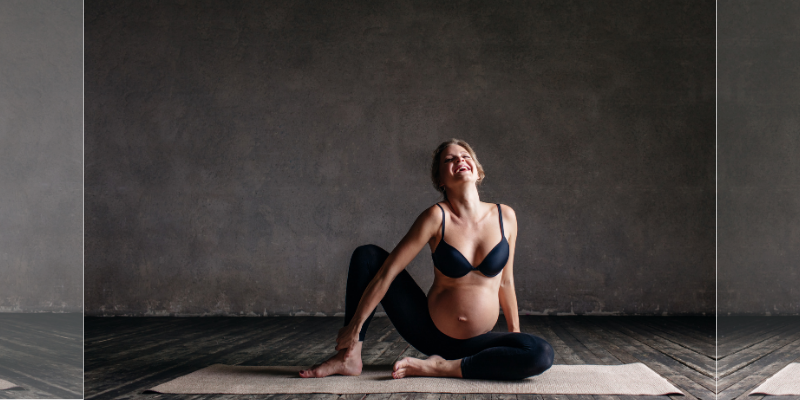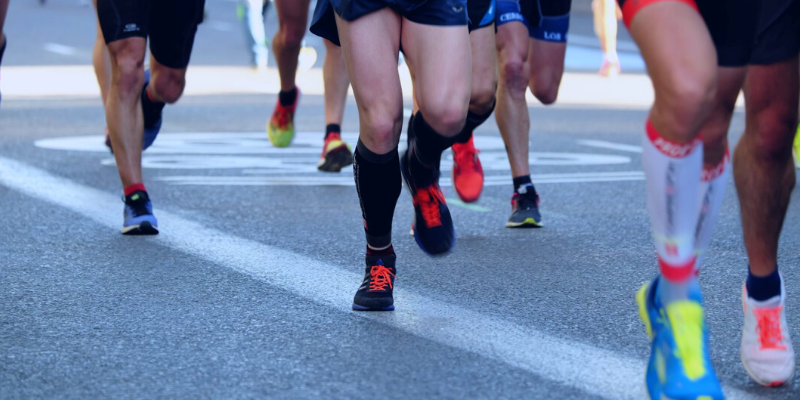Training can take an enormous amount of strength, power and discipline. Add pregnancy to the mix and this is magnified tenfold. We speak with MMA fighter and recent mother, Molly Lindsay to gain some insight into how it can be possible to continue your training during pregnancy. She shares what exercises she implemented when initiating training post-partum and other helpful tips for enhancing your recovery process.

Is it possible to stay fit throughout pregnancy?
"Yes, it is, and in my opinion it is important. I trained all the way through my pregnancy. I worked with my strength and conditioning coach to adapt my weight/resistance training programs through each trimester. From the first trimester, I dropped to only one session a day, but my training remained very much the same.

"In the second trimester, I slowed down but was training 4-5 days a week and was still mixing in weights and pad work. The last trimester was about just having fun. So it was whatever I felt like doing that day; a light jog, hitting pads, lifting some weights. I just made sure to keep my core and glutes strong to help with carrying the baby as he got a lot bigger."
How hard is it to start training again post-partum?
"The key is not to rush back to training, but to build things back up gradually. In principle, for me, it should have been easy. I just needed to spend an hour a day doing some kind of training. It wasn’t hard to find an hour a day during lockdown and having my partner with me to help. But emotionally, it was hard. My instinct was telling me to be with my baby every second and I didn’t really want to train. That is where the discipline comes in."

What kind of exercises did you do when you restarted training?
"It was lots of walking, strengthening my joints using resistance bands, mobility exercises, pelvic floor and core work. A few super light pad sessions here and there to stop me from going crazy. I knew that in order to get back to doing the fun stuff like hill sprints and wrestling, I had to do the necessary but boring bits first."
"You’re so vulnerable to injury after having a baby, so the focus was really on rehabilitating all those changes in my body and allowing it to heal."

Tell us more about the pelvic floor muscles?
"In post-partum, especially if you are breastfeeding, the hormone relaxin (a hormone produced by the ovary and the placenta) is still super high in your body. This is responsible for softening all of your joints and soft tissue to accommodate a growing baby when you’re pregnant. Every woman who has a baby will experience some level of descension of their pelvic floor muscles. For me, it’s a case of not overtraining so that those muscles are fatigued but doing enough to keep them strong. It’s a very hard balance to find."
How do you help your post-partum body recover between training sessions?
"At the moment, I’m using the NuroKor mibody to aid in my recovery. When you are looking after a baby, recovery is hard to find time for, so using bioelectrical technology is definitely helping. Instead of waking up sore and tired, I’m just waking up tired! I put my mibody on aching muscles whilst I’m cooking, cleaning or working. It comes everywhere with me."
"I’ve also found that breastfeeding has led to tension pains up my neck. I put the mibody on my shoulders whilst I’m feeding my baby and I find the whole experience more relaxing and comfortable."

What’s your best bit of advice for women who are going back to training post-partum?
"First off, go and see a women's health physiotherapist, even if you don’t think anything is wrong. It’s expensive, but you only get one body, so it is 100% worth it. Secondly, work with a postnatal qualified personal trainer. Although women often know their bodies better than anyone else, it really is easy to overdo it and cause yourself some damage. Thirdly, don’t rush it. Exercise will always be there, those newborn snuggles won't!"
Any final words on post-partum exercise?
It feels like you’ll never be able to get fit or in competition shape again. But you just have to take it one step at a time and trust the process. You have to get all of the bad reps/miles/throws out before you feel sharp again.

Follow her journey on Facebook page or on Instagram
Click here to learn more about how NuroKor aids recovery



